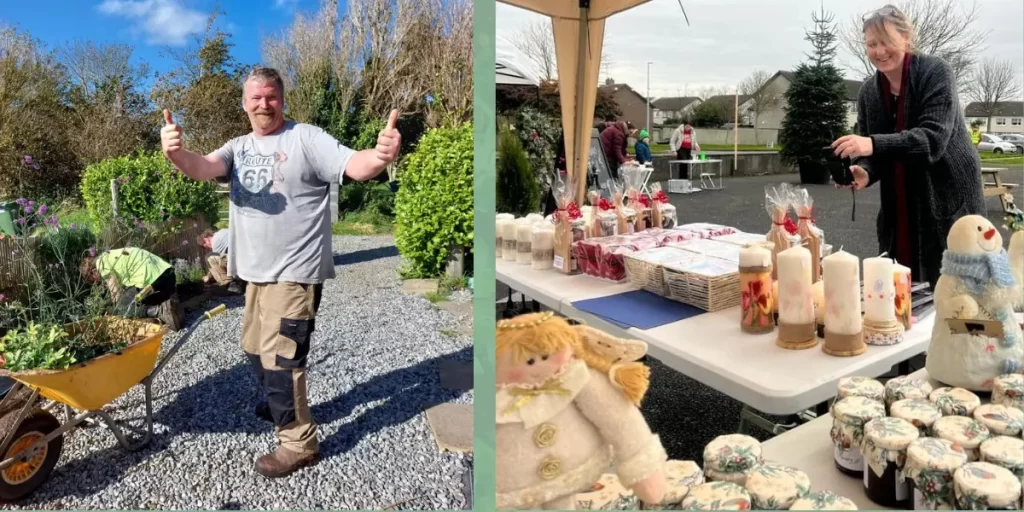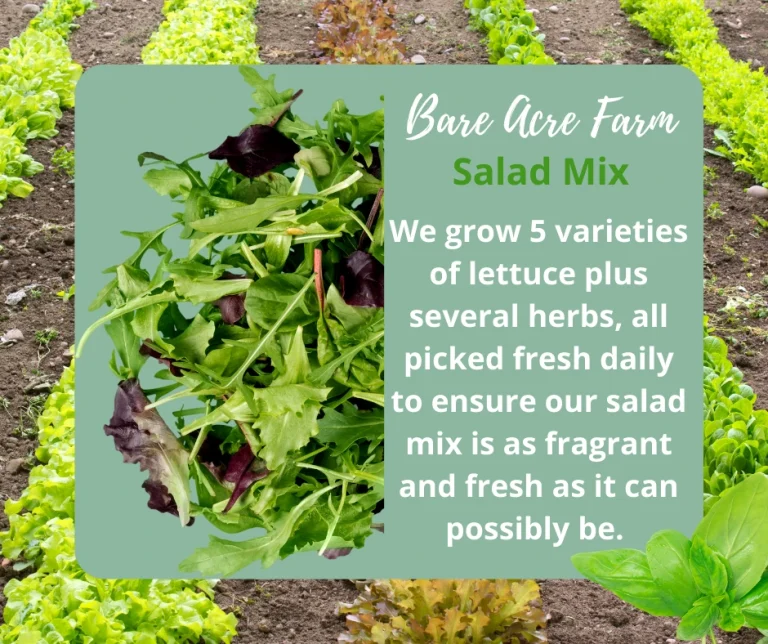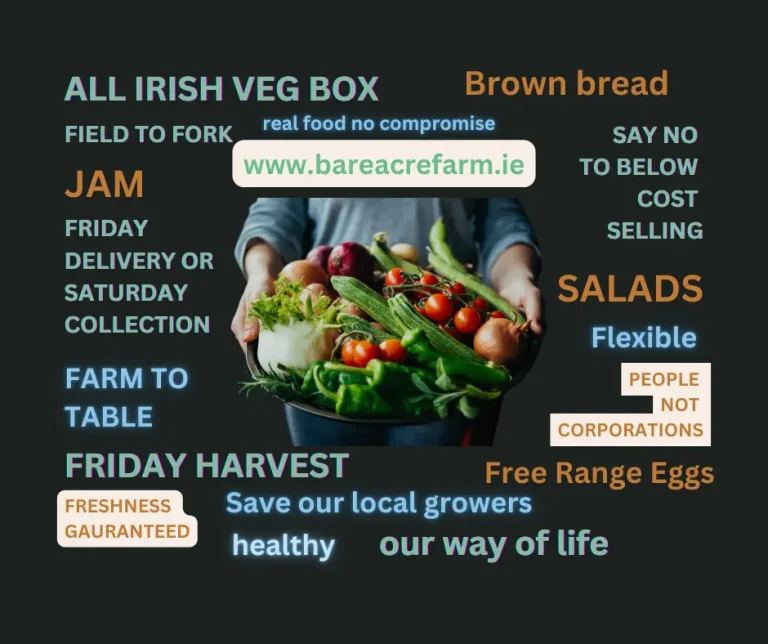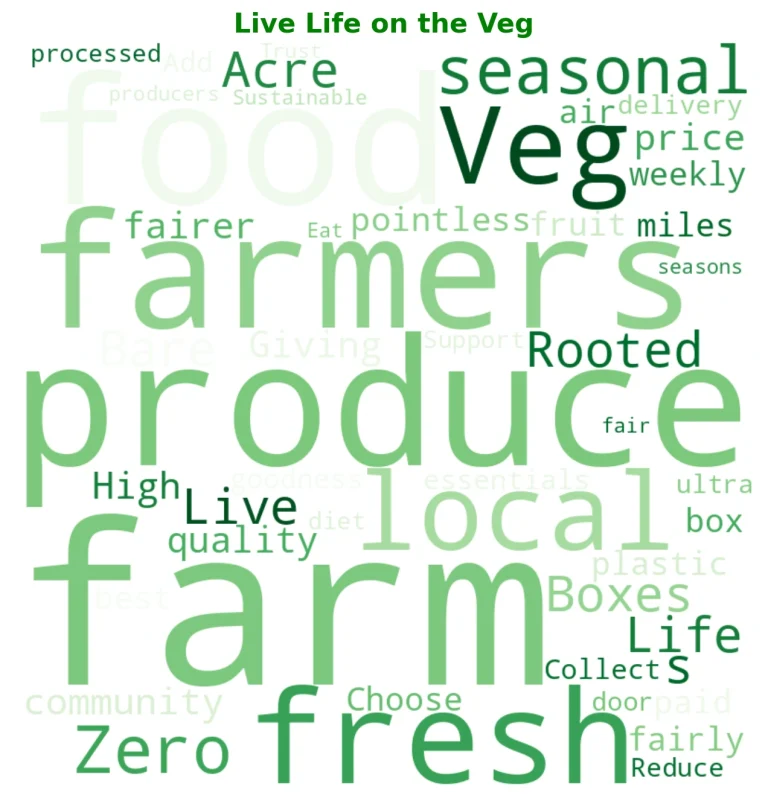When we started Bare Acre Farm, both myself and Ber were on the cusp of our sixth decade, and the idea was simple. We’d run our small farm, and there would be a shop that opened at weekends. Everything would run at a steady pace, giving us a bit of extra income and a way for two people who enjoyed being busy to slowly ease into retirement.
It didn’t quite work out that way.
From the very first week, it became clear that the farm meant more to people than we’d expected. The shop wasn’t just a place to buy vegetables and coffee. The counter quickly became somewhere to meet friends, to chat, and the farm became a place where people could step out of their daily lives for a while. Within a few weeks, neighbours were staying for an extra cup, bringing friends and family along.
Somehow, the place began to take on a life of its own. It stopped being just a farm shop and started to feel like part of the area’s social fabric. Both myself and Ber were faced with decisions we had never imagined.
We talked about sticking to the original plan—open weekends, limit our hours—but something about that didn’t feel right. The community element, the one we hadn’t factored into our earliest plans, had started as a whisper but was becoming a steady roar. The Bare Acre, and the trust our customers placed in it, was impossible to ignore.
So, we asked ourselves a question that would change everything:
What if we tried to give people what they clearly wanted?
It was not the sort of decision that made sense on paper. We were both coming out of careers that had seen us work hard and were looking forward to slowing down. We had savings meant to see us through retirement, yet here we were, considering taking on something new and uncertain—building a business around a community and allowing it to grow to the size that community seemed to want. The expansion would mean loans, longer hours, and the risk that, if it all failed, we’d be left with debt at a time in life when we should be winding down, not starting over.
But once the decision was made, something shifted.
We stopped thinking of the shop as “part-time” and started treating it as a living, breathing venture that needed our full attention. We put our savings into it. We borrowed the rest of what was needed to get the ball rolling. And then we made a rule: the farm would stand on its own two feet. No more loans. No topping it up from our personal accounts if things got tight. Any new expansion after the initial outlay would have to come from the farm’s own resources.
It was a leap into the unknown, and we knew it could go either way. Strangely, the lack of a safety net sharpened our focus. We thought harder about every penny we spent, every crop we planted, every new idea for the shop. We worked longer hours, yes, but it didn’t feel like a grind. There was a sense of purpose—a feeling that we were building something that mattered not just to us, but to the people who turned up, rain or shine, week after week.
And then, little by little, we started to see it work. Not in a big, dramatic moment, but in the steady rhythm of people coming and going from the coffee shop, the chatter of customers who’d met each other here for the first time, the quiet satisfaction of seeing the books begin to balance without us dipping into personal savings. We knew we’d never be wealthy from the farm, but we didn’t need that—we just needed the place to finance itself and give us a small return on our investment.
Here’s the truth: if we had set out to create Bare Acre as it is now, we’d probably have failed. We didn’t plan for this. It grew from the conversations we had with customers over the counter, by listening to what people wanted, and by returning the trust they placed in us. That decision—to listen to what our community was asking for, even when it meant turning our retirement plan on its head—is what shaped the Bare Acre as it is today. And that same sense of community will shape its future.
Looking back, the risks we took were real. The fear was real too—and still is, sometimes. But so is the reward. Not the financial one—though we’re glad we’ve kept the farm and shop on solid footing—but the reward of seeing the place alive with the very thing we didn’t plan for: friends, families, community.
We thought we were building a small farm.
It turns out we were making a place where people feel they belong.
Thank you for being a part of that journey.
Dave & Ber ♥️



